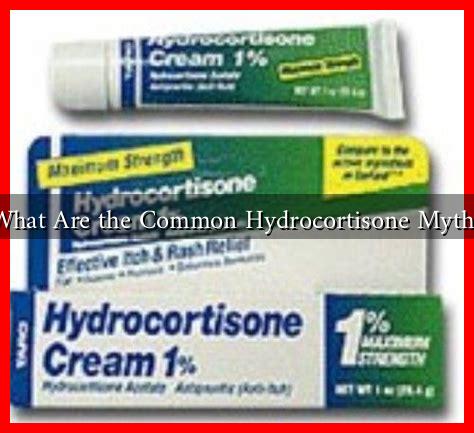-
Table of Contents
What Are the Common Hydrocortisone Myths?
Hydrocortisone is a widely used medication, primarily known for its anti-inflammatory and immunosuppressive properties. Despite its common use, several myths and misconceptions surround this corticosteroid, leading to confusion among patients and healthcare providers alike. In this article, we will explore some of the most prevalent myths about hydrocortisone, debunk them with facts, and provide valuable insights into its proper use.
Myth 1: Hydrocortisone is Just a Strong Anti-Inflammatory
One of the most common misconceptions is that hydrocortisone is merely a potent anti-inflammatory drug. While it is true that hydrocortisone effectively reduces inflammation, its mechanism of action is more complex. Hydrocortisone works by:
- Suppressing the immune response, which can help in autoimmune conditions.
- Reducing the production of inflammatory substances like prostaglandins and leukotrienes.
- Modulating gene expression to alter the inflammatory response.
This multifaceted action makes hydrocortisone suitable for various conditions, including allergies, asthma, and skin disorders, rather than just being a simple anti-inflammatory agent.
Myth 2: Hydrocortisone is Addictive
Another prevalent myth is that hydrocortisone can lead to addiction. This misconception likely arises from the fear surrounding corticosteroids in general. However, hydrocortisone does not produce the euphoric effects associated with addictive substances. Instead, it is a medication that can lead to dependence if used improperly over a long period. Key points to consider include:
- Hydrocortisone is not addictive in the traditional sense.
- Long-term use can lead to adrenal suppression, where the body reduces its natural cortisol production.
- Patients should follow their healthcare provider’s guidance to taper off the medication if used long-term.
Understanding this distinction is crucial for patients who may need hydrocortisone for chronic conditions.
Myth 3: Hydrocortisone Causes Weight Gain in Everyone
Weight gain is often cited as a side effect of corticosteroids, including hydrocortisone. However, this is not universally true. The likelihood of weight gain depends on several factors:
- The dosage and duration of hydrocortisone treatment.
- Individual metabolic responses to the medication.
- Diet and lifestyle choices during treatment.
Research indicates that while some patients may experience weight gain, others do not. A study published in the Journal of Clinical Endocrinology & Metabolism found that weight gain was more common in patients receiving high doses of corticosteroids for extended periods.
Myth 4: Hydrocortisone is Safe for Everyone
While hydrocortisone is a valuable medication, it is not suitable for everyone. Certain populations should use it with caution, including:
- Individuals with diabetes, as it can raise blood sugar levels.
- Patients with a history of gastrointestinal issues, as it may exacerbate conditions like ulcers.
- Those with infections, as it can suppress the immune response.
Consulting a healthcare provider before starting hydrocortisone is essential to ensure it is safe and appropriate for your specific health needs.
Myth 5: Hydrocortisone is Only for Skin Conditions
Many people associate hydrocortisone solely with topical treatments for skin conditions like eczema or dermatitis. However, hydrocortisone is also available in oral and injectable forms, making it effective for a wide range of medical conditions, including:
- Autoimmune diseases such as lupus and rheumatoid arthritis.
- Respiratory conditions like asthma and chronic obstructive pulmonary disease (COPD).
- Adrenal insufficiency, where the body does not produce enough cortisol.
This versatility highlights the importance of understanding hydrocortisone’s broader applications beyond dermatological use.
Conclusion
Hydrocortisone is a powerful medication with a range of applications, but it is often misunderstood. By debunking these common myths, we can foster a better understanding of its uses, benefits, and potential risks. It is crucial for patients to engage in open discussions with their healthcare providers to ensure they are using hydrocortisone safely and effectively. Remember, knowledge is key to making informed decisions about your health.

